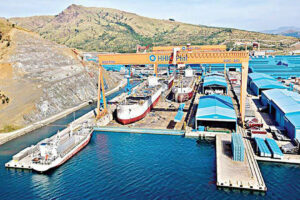THE Federation of Philippine Industries (FPI) is calling for a review of Republic Act No. 10142 or the Financial Rehabilitation and Insolvency Act (FRIA) to improve the chances of reviving companies that became distressed during the pandemic.
“We need this review of the efficacy of the corporate rehab law to… learn from actual cases how companies were successfully resuscitated or not. We need new investment, but we also need a better batting average on rehabilitation cases because this will save us a lot of economic wastage,” FPI Chairman Jesus L. Arranza said in a statement on Thursday.
On March 23, the House Committee on Banks and Financial Intermediaries conducted an inquiry based on House Resolution No. 797 which called for an evaluation of the effectiveness of FRIA.
The legislators examined the outcomes of rehabilitation proceedings filed with the Securities and Exchange Commission (SEC) and regular courts, the duration of such rehab exercises, and the reasons for delay.
“Also to be scrutinized are successful and failed corporate rehabs under the guidance of the SEC and courts to determine how the lapses in the existing law can be corrected and how the good provisions can be improved further,” Mr. Arranza said.
Mr. Arranza, who is also the chairman of Fight Illicit Trade group, said the actual cases to be reviewed include the failed rehabilitation of Uniwide Group of Companies, the rehabilitation of Hanjin Heavy Industries, and the rehabilitation of Victorias Milling Co.
Mr. Arranza was a former Uniwide president.
“I believe Uniwide will be a very good case study and will provide Congress a wealth of information that they will need in introducing revisions to the FRIA, including the restructuring of bank loans and valuation of properties subjected to dacion en pago (transfer of ownership to settle a debt),” Mr. Arranza said.
“The FPI members share the view of the lawmakers that there shouldn’t be more failed rehab cases to prevent economic wastage and the loss of jobs due to the closure of businesses. No business is immune to the impact of the pandemic, so this inquiry is really timely,” he added. — Revin Mikhael D. Ochave
